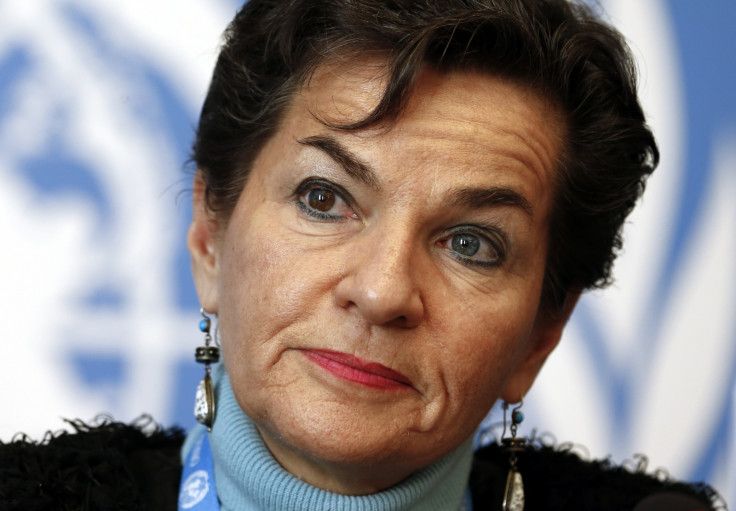Bonn climate talks: Nations 'lock' planet into catastrophe mode with no major agreements

Besides resolving some thorny aspects of a deforestation programme, the 11-day Bonn climate talks which concluded on Thursday (11 June) have nothing much to boast about.
It was only in the final hours that nations after much wrangling over the wording of the 89-page draft text managed to cut it down by four pages to 85.
Countries agreed that the co-chairs of the negotiations will make alterations to the text and present it to all countries for approval, before the next meeting in Bonn in August.
Consensus on the need for more ambitious and immediate emissions at the talks as well as from the G7 summit however did not result in tangible commitments. Demands from the developing bloc that developed nations enhance cuts in the pre-2020 period did not elicit a positive response.
Despite scientific studies and warnings issued at the climate talks on the urgent need to aim for stronger emission cuts to avert irreversible climate change, nothing more was placed on the table.
Bill McKibben, co-founder of 350.org, writes at Grist: "At the moment [world leaders] look set to ratify a global temperature increase of three or four degrees Celsius — that is, to lock us into a kind of slow-motion guaranteed catastrophe."
A new report from the UN Environment Programme offers solace in non-state climate initiatives that "might" bring emissions savings of close to 1.8 gigatonnes of carbon dioxide equivalent by 2020.
Climate funding uncertain
A major disappointment was the lack of resolution over a climate fund.
Whether and how rich countries will follow through on their current pledges to provide financial assistance and compensate poor nations for the historic loss and damage caused by their emissions remained unclear. Most developed nations have so far refused to cough up the aid.
While G7 leaders reaffirmed their commitment to mobilising $100bn a year in climate finance by 2020, donor countries have yet to elaborate how they will meet this goal.
"Negotiators avoided a show-down over crunch issues like finance and increasing near term emissions cuts, but they are only delaying the inevitable," said Jan Kowalzig, the climate change policy adviser for Oxfam International.
The only successful takeaway from Bonn was the resolving of REDD mechanisms.
Formally agreed to at the United Nations Framework Convention on Climate Change (UNFCCC) negotiations in Bali in 2007, Reducing Emissions from Deforestation and Forest Degradation, known by its acronym REDD, is intended to reward the preservation of forests with carbon credits which can be sold to polluting companies in the North wishing to offset their harmful emissions.
REDD+, agreed later, extends the concept beyond forests and plantations to include agriculture.
The deal at Bonn resolves most technical issues on REDD+, including finance mechanisms, safeguards and non-market approaches.
Like most climate talks, Bonn too saw negotiators wrangling over the wording in the pact.
Sparring over words
Africa, small island states and the least developed countries have unequivocally demanded that "loss and damage" be part of the Paris deal.
The term used in original UN treaties "common but differentiated responsibilities" saw a clear divide with China and India insisting CBDR be core to any pact, and the US and others pointing to the changing economic scenario.
CBDR says that while all countries, developed and developing, must alleviate climate change, the extent of responsibilities vary based on historical emissions and economic development.
The distinction says the US is no longer clear-cut given that China is now the world's biggest emitter and the second biggest economic power.
Samantha Smith, leader of the global climate and energy initiative at WWF, said: "Progress in Bonn has been slow, but a bigger concern is the growing gap between what is needed and what is being promised on finance and emissions. While much work remains to close that gap, there is hope that governments are finally committed to take more action on emissions prior to 2020."
Bonn has once again proven that leaders from the most developed countries are unwilling to buck the fossil fuel industry and make the urgent transition to renewable energy sources, said a Friends of Earth spokesperson.
Delegates will return to Bonn in August and October for more rounds of talks before the summit in Paris at the end of the year, which seeks to put in place a climate deal replacing the Kyoto Protocol after 2020.
© Copyright IBTimes 2025. All rights reserved.





















